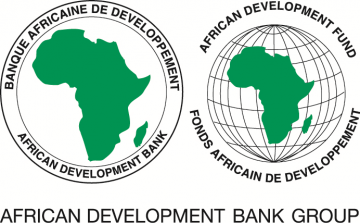M-KOPA and Pula Advisors Secure $1.3M Funding to Improve Women’s Digital Access to Loans

The African Development Bank (AfDB) has approved two grants for research that will increase African women’s access to a range of digital financial services including loans and micro-insurance.
According to a statement released by the bank on Monday 8th March, 2021, the grants for $1 million and $300,000 respectively, for two financial technology firms, Pula Advisors Kenya Ltd., and M-KOPA Kenya Ltd. will be disbursed through the Africa Digital Financial Inclusion Facility (ADFI), a blended finance vehicle supported by the Bank.
The $1 million grant for Pula Advisors will be used to research social, cultural and economic factors that impact women farmers’ access to micro-insurance in Kenya, Nigeria and Zambia. The research findings will then inform the design and implementation of gender-centric insurance products. This research project will be undertaken over a 3-year time frame.
According to Sheila Okiro, the Bank’s Coordinator for ADFI, “This grant funding will be used to leverage technology to develop innovative and responsive loan and insurance products that can spur productivity and inclusion, especially for our women smallholder farmers and traders.”
The three-year project will have three phases: product development; piloting; and scaling; the outcomes are expected to benefit 360,000 farmers, with 50% of them being women, as well as boost farm yields by up to 30%. This is expected to raise incomes and enhance household and national food security in the Africa.
The research grant of $300,000 for M-KOPA will be used to fund research involving 250 women and 250 men in Kenya’s Kisumu, Eldoret and Machakos counties. The company will assess the barriers to and opportunities for women’s access to digital financial services and financial literacy programmes via smartphone, and use the research insights to design a financial services app that is relevant to small scale women traders who make up a huge a segment of the informal economy in Africa. 74% of women in Africa operate in the informal economic sector. However they are the most marginalised when it comes to access to funding and start-up capital for their small businesses.
The project, which was approved by the Bank on 9 February, 2021, but announced on International Women’s Day, March 8th 2021, will benefit women with no or limited access to financial services that run small informal businesses. The Bank stated that once the mobile app is developed, it will be used to pilot small loans to the women traders.
M-KOPA is an African connected asset financing platform that provides underbanked customers in Africa essential products including solar lighting, televisions, smartphones, financial services, with presence in Nigeria, Kenya, and Uganda.
While Pula Advisory is a Kenyan based company that uses insurance and digital products to help small holder farmers endure climate risks, improve their farm practises, and bolster their incomes overtime.
Both research projects align with ADFI’s digital products and innovation and capacity building intervention pillars as well as its cross-cutting focus on gender inclusion, a thematic running across all its interventions.
According to the press release, the grant approval for PULA meets the African Development Bank strategic goals, including the Ten-Year Strategy, two High-5 priority areas – feed Africa and improve the quality of life for Africans – and the financial inclusion strategies of Kenya, Nigeria and Zambia.
While the M-KOPA project is aligned with the Bank’s Affirmative Finance Action for Women in Africa (AFAWA) program that seeks to increase access to finance for women.
ADFI is a pan-African initiative designed to accelerate digital financial inclusion throughout Africa, with the goal of ensuring that 332 million more Africans, 60% of them women, gain access to the formal economy.
The economies of many African countries remain largely informal with women making 3 out of 4 workers in the informal economy, excluding agricultural jobs. According to the World Bank, 37% of women in the region have a bank account, compared to 48% of men. And, while the percentages are low for both sexes, what is troubling is that the gap has widened over the past several years. Having an account provides some level of access to bank loans or mobile money payment platforms that provides capital. It also enables them to transact in safe and convenient ways.
Although women constitute a majority in the informal sector, this has not translated to greater control of finance or improved economic conditions for them. The COVID-19 pandemic has also exacted a heavy toll on the livelihood of workers in the informal sector as many countries have had to implement shutdown measures to slow the rate of infections in the continent. This research grant by the ADFI will contribute to solving some of the challenges women face regarding access to credit and bring about more financial inclusion in the continent. It will also help combat social marginalisation and improve family wellbeing as the income of many African women goes back into the upkeep of the household.